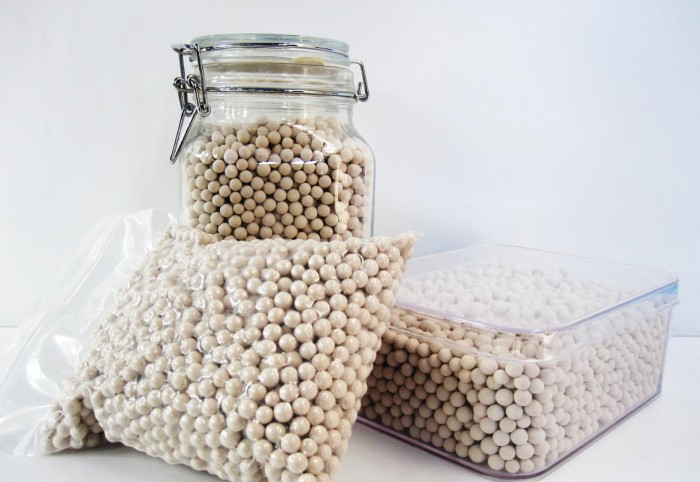
Plant scientist Kent Bradford believes a simple ceramic bead that sucks moisture out of the air can make agriculture far more energy efficient and much less expensive.
The beads are made from zeolites, a class of porous minerals that readily bind with certain materials. In this case, the pores were engineered to be just the right size and shape to trap water molecules. Bradford, a professor of plant sciences at the University of California, Davis, estimates they could cut the energy used in large-scale drying operations in half and, in humid parts of the world, greatly reduce the loss of crops to rot and fungal toxins.
The beads were developed by Rhino Research in Thailand. Bradford and his collaborators there have spent several years testing and refining the technology with local farmers in that country as well as in India, Nepal, Kenya, and other tropical nations, where as much as a third of crops are lost before reaching consumers. In those areas, the beads are placed alongside, say, harvested rice or maize seeds, separated in mesh sacks or screened-in compartments within containers. They then capture water from the air, significantly reducing the moisture that leads to rot and fungal infections.
Don’t settle for half the story.
Get paywall-free access to technology news for the here and now.